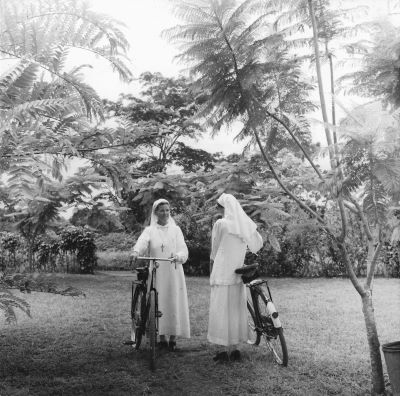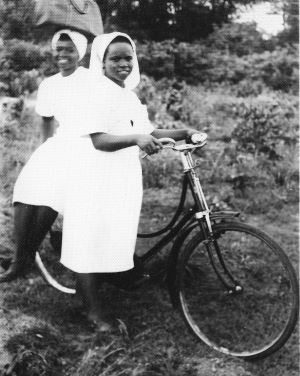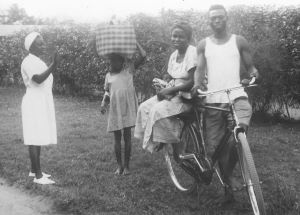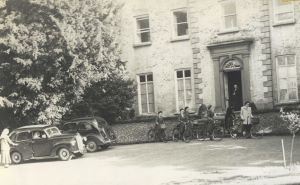World Bicycle Day
By Lisa Murphy MMM Archivist Ireland 26.06.2022
 In order to draw attention to the health and environmental benefits of cycling, the United Nations has designated the 3rd of June as World Bicycle Day. They state that cycling ‘is a simple, affordable, reliable, clean and environmentally fit sustainable means of transportation, fostering environmental stewardship and health’. Here in the MMM Archive I have come across numerous references and images which are a testament to how valuable bicycles have been for MMM over the years.
In order to draw attention to the health and environmental benefits of cycling, the United Nations has designated the 3rd of June as World Bicycle Day. They state that cycling ‘is a simple, affordable, reliable, clean and environmentally fit sustainable means of transportation, fostering environmental stewardship and health’. Here in the MMM Archive I have come across numerous references and images which are a testament to how valuable bicycles have been for MMM over the years.
There are many letters from Sisters writing to Mother Mary requesting permission to purchase bicycles to assist in their work. Bicycles have been vital as a means of transport on the missions. We know that in the early days of the Ogoja Leprosy Settlement that the use of a push bicycle was critical to Doctor Joseph Barnes during his initial survey of leprosy in Ogoja. An article by Bishop Thomas McGettrick states that Doctor Barnes was ‘provided with a push bicycle and given a map of 8600 square miles of the Ogoja Province’. A letter from Doctor Barnes to Mother Mary in 1944 states that he could do with the use of a car as he is currently ‘cycling everywhere’.
We also know that the use of a bicycle enabled MMM Sisters and medical staff to provide treatment to people at their own homes. A 1953 letter from a Sister in Nigeria to Mother Mary writes ‘Next week we are putting a midwife out with maternity kit and bicycle and she will go and do ante-natal treatment and deliver the patients in their homes’.
Bicycles on the missions were equally important to the local people as it enabled them to travel for treatment. In a ‘Letter to Nuala’ column from the Mar-Apr 1944 MMM Magazine, Sister M. Elizabeth describes how many families made their way to the MMM bush clinics on bicycles. She writes ‘A whole family travels sometimes on one bicycle. Father cycles with mother on the carrier, a baby or two on her knee.’


At home in Ireland, bicycles also provided a vital means of transport for MMM Sister students travelling from Rosemount to college and hospital during their training. Correspondence from 1967 mentions that the father of one MMM Sister wished to use money that he had inherited in order to provide bicycles for the students at Rosemount. As we reflect on the benefits that cycling can have for our climate today, it is also fascinating to know that the humble bicycle was so instrumental in assisting MMM to undertake their work both at home and abroad.

SEE ALL BLOG POSTS
